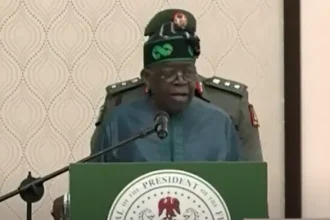The Minister of the Federal Capital Territory, Nyesom Wike, has disclosed that providing potable water to Abuja’s satellite towns remains a top priority of President Bola Tinubu’s administration.
The minister made this revelation during his inspection tour of ongoing projects in the nation’s capital on Friday, while providing details about his recent trip to China to finalize arrangements for the water project.
Wike explained that the Federal Capital Territory Administration had signed a Memorandum of Understanding with China Geo-Engineering Corporation Overseas Construction Group for the provision of water in satellite towns. His visit to China on May 1 was a follow-up to accelerate the project’s implementation.
“This is a critical project for Mr President,” Wike emphasized. “As I speak to you, Mr President has included part of the funding of the satellite towns in the National Budget, which has been passed. We have also included it in our statutory budget, which has been laid before the National Assembly.”
The minister recalled that the Tinubu administration had promised to deliver the Abuja City Water Supply, with partial completion along Airport Road expected in its second year. Beyond this, the President specifically directed that satellite towns must be provided with clean water. The project will commence with Bwari, Karu, and parts of Kubwa, with the procurement process currently at the Bureau of Public Procurement stage. CGCOC, the company handling the Greater Abuja Water Supply, will execute the satellite town water project.
Wike commended President Tinubu for supporting the FCT Administration in delivering impactful projects across various sectors including roads, health, and education. He revealed that 85 percent of the FCT Statutory Budget, when passed, would be dedicated to completing ongoing projects, while only 15 per cent would be allocated to new projects. This approach aims to revive and complete all abandoned projects for public use.
The education sector alone has been allocated about N140 billion for capital projects in the statutory budget.
“If you see the number of schools being renovated, you’ll understand that education has a significant allocation in the budget,” Wike noted.
He stressed that the administration’s focus remains on completing existing projects rather than initiating new ones, ensuring no project is left abandoned.







